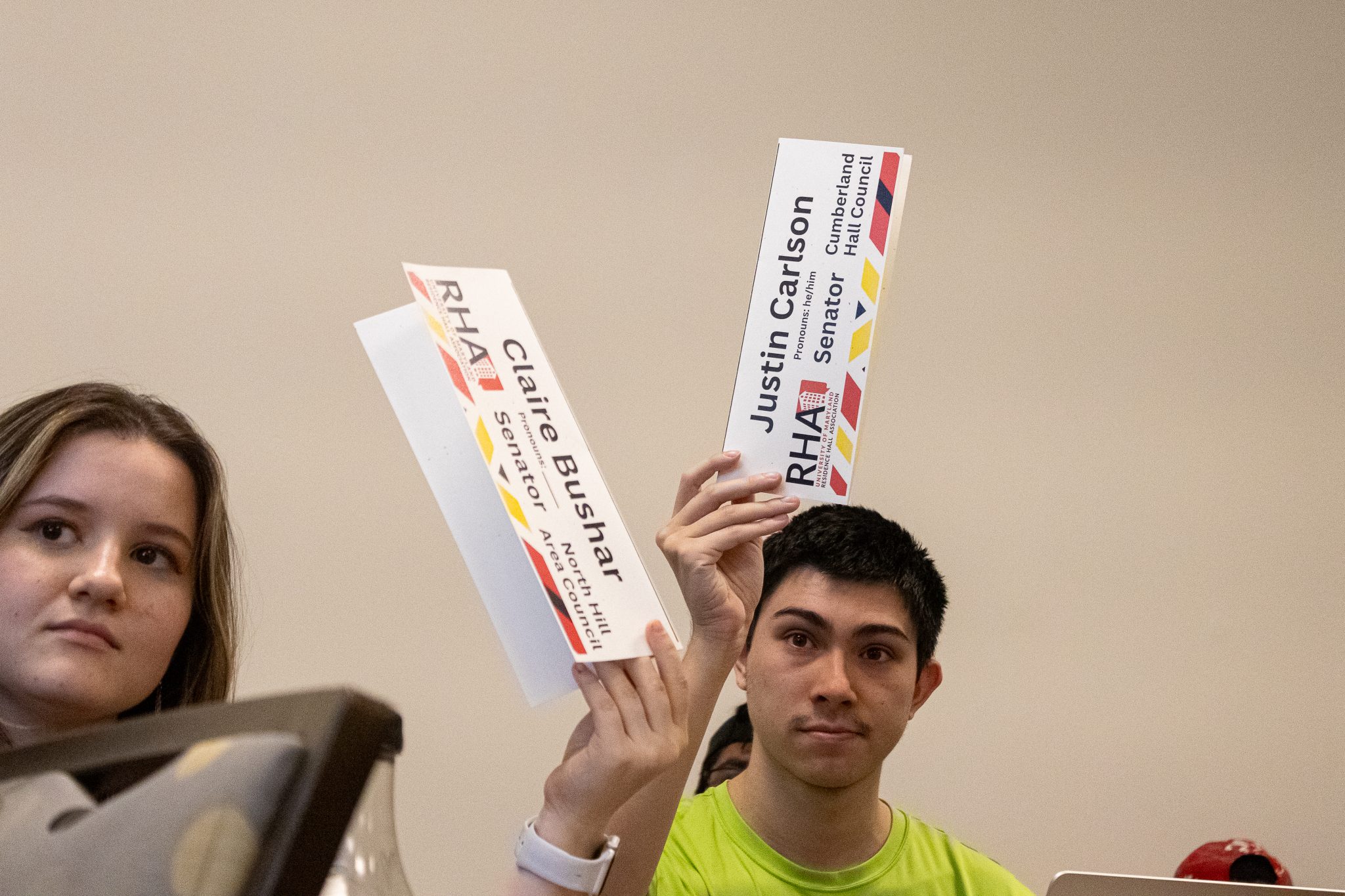The University of Maryland’s Residence Hall Association passed 10 bills this academic year, including resolutions to promote student voter registration and create committees dedicated to accessibility and transfer students’ needs.
Outgoing RHA vice president Michelle Ameyaw said although the number of bills passed this year is less than half of the 26 passed last academic year, the smaller number indicates the intention behind each resolution.
“The bills that were passed were very salient and were done so with intent and had lasting impact, or will have lasting impact, on our residents,” the junior biological sciences major said.
Recently-elected 2025-26 RHA president Emily Shoemaker attributed this year’s lower amount of new legislation to a focus on outreach programs.
The governing body’s two main focuses are legislation and programming, the sophomore information science and philosophy, politics and economics major said. But some years, there’s an increased emphasis on one over the other, she said.
Shoemaker also said RHA hopes to encourage more senators to bring forward legislative ideas in the upcoming academic year.
[UMD RHA elects Emily Shoemaker as president for next academic year]
The formal bill proposal process can be intimidating for students, she said, but starting open conversations about potential concerns is an important step.
“If people are comfortable talking about that and pursuing those solutions, it will just better campus as a whole,” Shoemaker said.
Here’s a look at some of the bills RHA passed this academic year.
Events Promoting Voter Registration
Ameyaw authored a resolution during election season requiring at least one “Floats 4 Votes” drive event be hosted in collaboration with Dining Services each year to promote student voter registration.
The event prompts civic engagement by offering students free ice cream and root beer in exchange for completing a voter’s education quiz or for interacting with TerpsVote on social media, according to the resolution. The resolution also specifies the event must take place before the Maryland voter registration deadline in an election year.
Ameyaw said she expects this resolution will have long-term benefits for students’ civic engagement.
“We wanted to make it a yearly thing so that students aren’t just thinking about registering to vote and civic duties when it’s an election year,” she said.
Mandatory Sustainability Fee
RHA called an emergency senate meeting over winter break to review a mandatory fee proposed by this university’s sustainability office. The resolution recognized that a portion of the fee would contribute to this university’s Campus Pantry, according to senator Claire Bushar.
The freshman bioengineering major, who presented the bill, said funding Camps Pantry operations is especially important with the reported increase in food insecurity on campus.
27 percent of respondents to this university’s spring 2023 Food Access and Student Well-Being study reported experiencing food insecurity, according to the survey.
“Supporting the campus pantry … was a valuable use of that sustainability fund to care for our student community,” Bushar said.
Considering a mandatory fee, Ameyaw said, was somewhat unprecedented, as RHA is generally only asked to consider non-mandatory fees. RHA approved two non-mandatory fees this year, proposed by this university’s Dining Services and Resident Life and Residential Facilities departments, according to the senate’s webpage.
[New UMD RHA committee set to focus on accessibility, disability rights]
Diversity, equity and inclusion and Sustainability Reaffirmation
RHA’s reaffirmation of its commitment to diversity, equity and inclusion and sustainability was intended to reassure and remind students of the organization’s mission and stance in the face of federal uncertainty, Ameyaw said.
The resolution followed a similar bill under the same name passed by this university’s Student Government Association in February.
Advocacy surrounding DEI and sustainability are vital in supporting RHA’s goal of uniting students of different backgrounds, Ameyaw said.
“It reaffirms that RHA is truly here to support and represent all the students living on campus, regardless of what they may be facing,” senator-at-large and freshman chemical engineering major Jacqueline Geary said.
Ad Hoc Committees
The senate passed two resolutions creating ad hoc committees dedicated to on-campus accessibility and transfer students’ concerns at the last RHA meeting of the spring semester. Both were authored and presented by senator and sophomore marketing major Angela Lin, who saw a need for more representation for and focus on these groups.
The transfer student committee will focus on the needs of students transferring to this university from community college and other four-year institutions, according to Lin. The resolution specifies the committee must host at least one event per semester specifically for transfer students.
The accessibility and disability committee hopes to collaborate with this university’s accessibility and disability service department, Lin told The Diamondback in April. Lin said she also hopes the committee will host regular events for disabled students.
“The goal is to have students know this committee and attend it and feel like it’s like a safe space for them,” Lin said.



